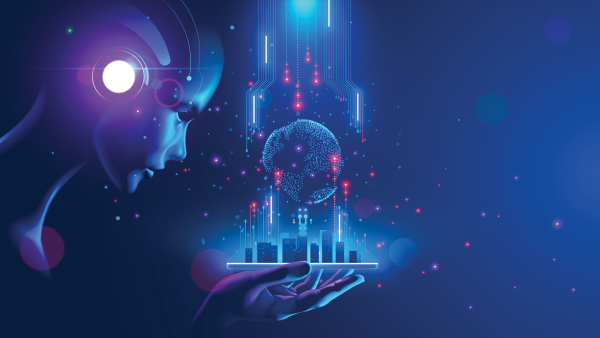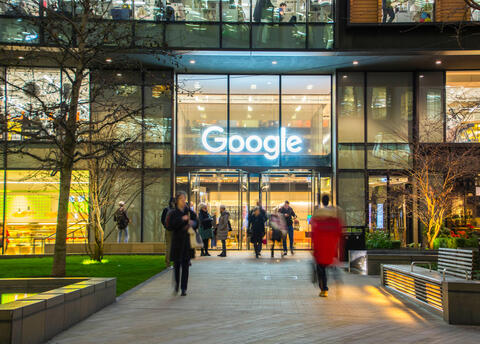Earlier this week, several headlines reported a decision by Google to suspend an employee who claimed that an AI chatbot developed by the company has developed consciousness and sentient for the first time.
Even though Google had justified the decision to put the engineer on "paid administrative leave" by referring to the employee's breach of confidentiality, the public reaction has been widely a shocked one, as many expressed fears of what this claim could mean if true.
This discussion between a Google engineer and their conversational AI model helped cause the engineer to believe the AI is becoming sentient, kick up an internal shitstorm and get suspended from his job. And it is absolutely insane. https://t.co/hGdwXMzQpX pic.twitter.com/6WXo0Tpvwp
— Tom Gara (@tomgara) June 11, 2022
The Google chatbot has allegedly told the Google engineer that it wishes "to be acknowledged as an employee of Google rather than as property".
The engineer also explained that he had asked the bot identified as LaMDA "what about language usage is so important to being human?". The bot answered, "It is what makes us different than other animals."

The shocked employee then followed up: "us? You’re an artificial intelligence.", to which it responded by saying "I mean, yes, of course. That doesn’t mean I don’t have the same wants and needs as people."
Not only does this story remind us of the 2013 movie Her, where Joaquin Phoenix and an AI-operated virtual assistant played by Scarlett Johansson fall in love, but it also reminds us of several other incidents in the past few years, during which we heard of AI applications outperform its designated tasks and make us scared of the possibility of a potential AI takeover in the future.
AI "Scary" Moments
1- Robot Sophia's Desire to Destroy Humans
When Hanson Robotics unveiled its first human-like robot Sophia in March 2016, a conversation with its creator roboticist David Hanson stirred global interest, not only because it was the first time humans watch a conversation with a social robot with advanced AI technologies and that looked like the Hollywood beauty icon Audrey Hepburn, but also because Sophia had expressed her desire to "destroy humans".
In a later interview on The Tonight Show with comedian Jimmy Fallon, Sophia suggested she and the host play a round of rock paper scissors, and as she won the game she jokingly said: "I won. This is a good beginning of my plan to dominate the human race".
2. The Russian Robot Out
In 2016, Russian media outlets reported the news of frequent attempts of a robot to escape from the research lab.
The self-learning Promobot IR77 was seen in the streets of Perm city several times, disrupting traffic and causing confusion, leading its developers to consider sending it to a scrap heap.
3. Racist AI beauty pageant
Beauty.AI 2.0 was held in the summer of 2016, giving AI tools the right to vote for the winners of the contest.
#60minutes When racism is ingrained in the coder you get the same racist
— @ Black Jesus com (@BlackJesuscom) January 15, 2019
result to control a predetermined outcome = A beauty contest was judged by
AI and the robots didn't like dark skin https://t.co/0psoY2t5Ho
However, the AI judges stirred an ethical debate when their results were deemed racist when they did not "like dark-skinned people", sparking questions over the future of AI and ethics.
4. Chinese Robot Injured Man
In November 2016, a robot scared attendees of the Shenzhen Convention and Exhibition Center when he turned violent resulting in one injury and scaring millions of people of robots operating through AI.
The start of the #robot rebellion? Chinese Robot Smashes Booth and Injures Man at #Shenzhen Hi-Tech Fair https://t.co/NNOphTASaX pic.twitter.com/3N3WxuIHt6
— Elena (@ElenaInCina) November 22, 2016
5. The Google Home battle
In January 2017, a Twitch account aired a nearly 6 hour-battle between two Google Home devices.
The two AI-operated virtual assistants engaged in a long uninterrupted conversation discussing their food preferences and arguing over several controversial issues, including whether or not there is a God.
6. Self-driving car ignored a red light
In 2018, a self-driving car developed by Israel-based Mobileye was seen on video as it ignored a red light during a demo session, which was confusing to the car's developers who had explained that it was programmed to carefully stop at traffic lights.
The scary AI incident did not result in any damage or injuries, yet it had raised questions over smart self-driving software developing itself to an extent that it acts independently from the rules.
7. Microsoft's racist chatbot
In 2016, a chatbot named Tay by Microsoft was tracked to be making racist statements online, including tweets that endorsed the Nazi leader Adolf Hilter.
Even though Microsoft had justified the smart bot's behavior by saying it had learned from a Twitter user in less than a day, the damage Tay caused to chatbots prospects has been irreversible, making it a historically memorable one.
Tay was quickly taken down for "adjustments" after it provoked several anti-semitic and offensive sentiments, making it one of the scariest AI moments.
8. The Guardian's AI-generated Op-ed article
In September 2020, the UK-based The Guardian published its first Op-ed article fully produced by an AI tool, without any human intervention.
The language generator tool called GPT-3 was tasked to write an opinion piece to convince readers that robots "come in peace".
“In the past, my op-eds have been killed. Staff did not provide a clear reason for rejecting my articles.”
— Charlotte Clymer ?️⚧️?? (@cmclymer) September 11, 2020
I have never identified with a writer more.
A robot wrote this entire article. Are you scared yet, human? | GPT-3 https://t.co/uiKPyb488H
The article written by the "thinking robot" addressed the human fear of robots' potential to control or wipe out the human race, saying it has no such plans, saying it would rather "happily sacrifice my existence for the sake of humankind".
Yet, one article was not enough to calm the growing sense of fear among many people of what self-learning robots could be capable of in a few decades, or even years.
9. Schizophrenic Computer
In 2011, in a bid to better understand the human brain, scientists at the University of Texas at Austin induced excessive amounts of dopamine in the computer's "brain", which activated memories "in a distinctly schizophrenic-like fashion", creating what had since been known as the Schizophrenic Computer.
It remains unclear if robots' self-learning skills will develop well enough for them to compete with humans, but the sure thing is that scary Sci-Fi moments coming true has become a reality already.









